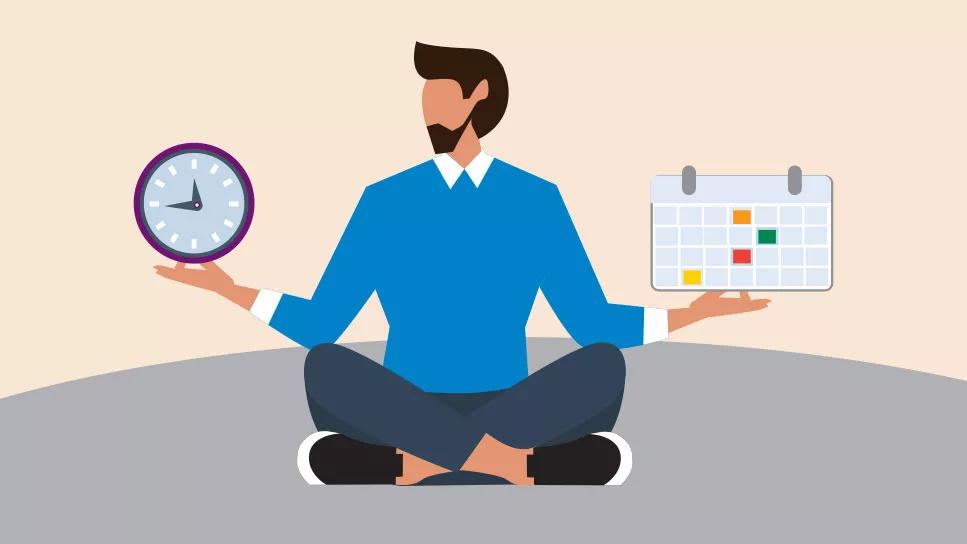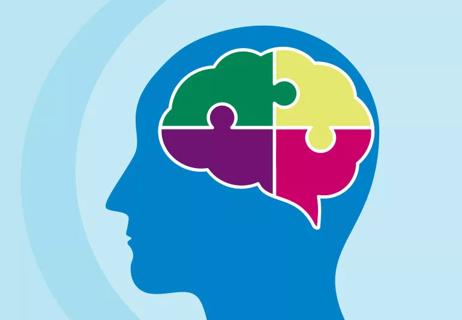Advertisement
Rethinking your Mondays might make the ‘Sunday scaries’ a thing of the past

Have you heard of the “Sunday scaries”? Even if you haven’t, you’ve probably experienced them before. It’s that feeling of anxiety and dread that starts to crop up on Sunday evening, when you start thinking about the week ahead. Suddenly, Monday isn’t just a day on the calendar: It’s a scheduled nightmare.
Advertisement
Cleveland Clinic is a non-profit academic medical center. Advertising on our site helps support our mission. We do not endorse non-Cleveland Clinic products or services. Policy
Clinical health psychologist and behavioral sleep medicine specialist Alaina Tiani, PhD sees the impact of the Sunday scaries all the time.“I hear from a lot of patients who have trouble sleeping on Sunday night and into Monday morning because they're lying in bed, wide awake, worrying about all the things on their to-do list the next day,” she says.
Starting your week already sleep-deprived and stressed can take a big toll on your mental and physical health, not to mention your productivity. But what if Monday wasn’t the hardest day of your week? What if — stay with us here — you used Monday to gently ease yourself back into the rhythm of work and life? What if the most dreaded day of the week was energizing and refreshing enough to be … enjoyable?
That’s the basic premise behind the concept of “Bare Minimum Mondays.” You adjust the amount or kind of work you do and prioritize self-care, so you have the energy you need to get through the rest of the week comfortably.
Social media influencer Marisa Jo Mayes first popularized the concept of Bare Minimum Mondays, but it’s long since taken on a life of its own. We asked Dr. Tiani why that is — and how you can tailor this mental health trend to fit your lifestyle.
The term “Bare Minimum Mondays” is a bit misleading. While some people might actually manage to do the bare minimum that’s required of them on Mondays, that’s not going to be possible, or even desirable, for all of us. As Dr. Tiani quips, “I certainly wouldn’t want my surgeon to do the bare minimum!” Instead, she thinks about Bare Minimum Mondays as a way of reframing or shifting your mindset toward the day.
“It’s not about doing less, so much as reducing the pressure that we put on ourselves” Dr. Tiani notes. Remember: When you’re doing the bare minimum, you’re doing enough. Enough to stay on track, meet deadlines and perform at an acceptable level.
Instead of showing up to work on Monday faced with a teetering pile of to-dos, a Bare Minimum Monday is focused on completing only the most necessary tasks — not what Dr. Tiani refers to as “wishful thinking tasks.” Instead of jumping into the week with the goal of overachieving, you return to work focused on what really matters. And you cut yourself some slack with the other stuff. It’s a way of setting a boundary for yourself.
Advertisement
What gets prioritized on a Bare Minimum Monday depends on the job you’re doing and your personal preferences. But as a general rule of thumb, Dr. Tiani recommends prioritizing any tasks that involve other people or strict deadlines. So, yeah, attend that weekly meeting that raises your blood pressure a bit. And then, give yourself permission to respond to emails that aren’t time-sensitive on Tuesday.
That’s just one of many examples of what a Bare Minimum Monday could look like. Here are a few more:
Advertisement
Right about now, you might be noticing that Bare Minimum Mondays aren’t an option for all people. Toxic workplaces may make it difficult to take any time for yourself. And if you work in healthcare, teach, drive a truck or work on an assembly line, you probably can’t put off the tasks that make you anxious, much less devote work time to self-care.
While your workday might look very different, Dr. Tiani says there are ways to get into the Bare Minimum Monday spirit.
“If you have less control over what your workday looks like, consider focusing on the time you can control,” she suggests. Find ways to make Mondays a little less chaotic for yourself. Or make it a day you can look forward to.
Maybe Monday’s the night you get takeout for dinner instead of cooking for your family. Or maybe you have a standing coffee date with a friend at that coffee shop down the street from work. Maybe you use your lunch break to sit outside ... or read ... or just not for a while. What you do isn’t important. What’s important is that you’re focused on yourself and doing something that recharges your battery.
Dr. Tiani thinks Bare Minimum Mondays are a great way to incorporate self-care into your work week.
“I think it allows for a gentler start to the week,” she explains. It also helps ward off feeling overwhelmed, decision fatigue, procrastination and burnout.
Advertisement
Dr. Tiani uses a car as an analogy: “You put fuel in the car — the fuel is rest, relaxation or just time where you’re not under pressure or on the clock. You can only go so far in that car before you have to stop for fuel.”
Many of us have trained ourselves to ignore the warning lights that pop up on our mental dashboard, the signals our brain and body send us that we need to rest. We may even struggle to rest because we feel guilty or can’t calm our racing thoughts. But that doesn’t make rest any less important. In fact, rest can make us more productive, not less.
“If you don’t rest, that’s a one-way ticket to burnout,” Dr. Tiani states. “Making those pit stops along the way, refueling, it can actually promote greater productivity and achievement in the long term and contribute to improved quality of life.”
There’s another reason Dr. Tiani is an advocate for Bare Minimum Mondays: It’s a reminder that your worth has nothing to do with your productivity. Rest is not a reward: It’s a biological and psychological need that you don’t need to make excuses for.
“We’re not machines,” Dr. Tiani stresses. “It’s OK to have different levels of productivity and energy — to not have the same exact output every single day. There are going to be days where we do more things on our to-do list and some days where we accomplish less. It’s all about finding that balance.”
That last point is particularly important — and highlights the one criticism of Bare Minimum Mondays that, from a mental health perspective, is worth considering: If you don’t maintain a balanced workflow, you might end up stressing yourself out more. In other words, make sure you’re realistic about how bare your Bare Minimum Monday can be without throwing off the whole week.
“Bare Minimum Mondays” is one of many new work-related buzzterms that have emerged in recent years. Others include “resenteeism,” “rage applying” and “quiet quitting.” Taken together, these terms all suggest that our understanding of work-life balance is changing. Hustle culture — also known as the “grindset” — is slowly losing steam. And so are its advocates.
Advertisement
“We’ve valorized overwork for a long time,” Dr. Tiani says. “While a good work ethic is important, overworking is often not sustainable and comes at the expense of physical and mental well-being.”
Dr. Tiani believes the COVID-19 pandemic has played a considerable role in why societies around the globe are pushing back. “Most of us experienced some level of increased stress during the pandemic, and I think this forced us to take a step back and re-evaluate our priorities,” she explains.
COVID-19 was a traumatic reminder of just how short life is. It was also a time of both mass unemployment and mass burnout. Quarantine gave us the opportunity to both take stock of our lives and — for some of us — to adjust how we work. It helped us understand that rest isn’t just a right, it’s the secret sauce that makes us our most creative, efficient and effective selves. Talk about a potent recipe for social change!
A Bare Minimum Monday won’t (and shouldn’t) look the same for all people. Tailoring the concept to fit the type of work you do, your schedule and the activities you enjoy is key. The most important part of Bare Minimum Mondays is the relaxed mindset, not the tasks you do or don’t complete.
By placing less pressure on yourself, you relieve the “Sunday scaries” and give yourself the energy boost you need to be even more productive during the rest of the week. It’s also a good way to recommit to the idea that you are more than your job and you have a right to rest.
Learn more about our editorial process.
Advertisement

Our collective misremembering of events comes from a surplus of false memories

This alternative brain-body therapy focuses on unlocking pent-up feelings, memories and tension that may be stuck in your brain and body

With a little planning, you can fill your belly and boost your energy

While walking, be mindful of your body, your mind, your place in the world and all five of your senses as you pave a path forward, one step at a time

Local LGBT centers, online directories, visual cues and gender-affirming care or non-discrimination policies can all be helpful resources and cues

In a world where instant gratification is the norm, you can train yourself to be more comfortable waiting patiently

Look to activities you enjoy — or try a new hobby — to help foster meeting new people

This romantic orientation involves little to no romantic attraction to others and exists on a spectrum

Focus on your body’s metabolic set point by eating healthy foods, making exercise a part of your routine and reducing stress

PFAS chemicals may make life easier — but they aren’t always so easy on the human body

While there’s little risk in trying this hair care treatment, there isn’t much science to back up the claims